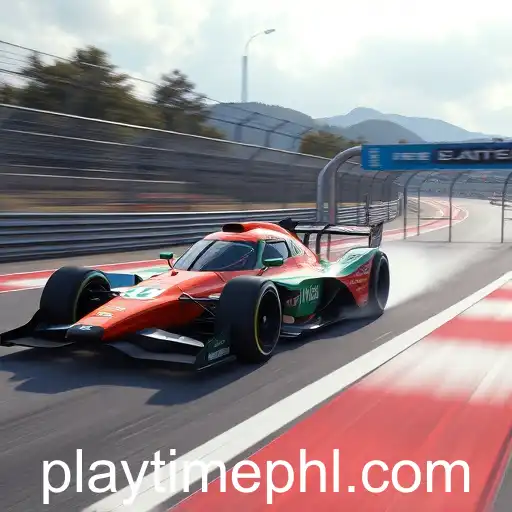Racing games have been a staple in the gaming industry for decades, providing players with the adrenaline rush of high-speed competition from the comfort of their homes. As technology has evolved, so too has the genre, offering a diverse array of experiences that cater to every type of gamer. Whether you are a casual player looking for a quick adrenaline fix or a hardcore enthusiast prepared to invest hours into perfecting your driving skills, racing games have something for everyone.
The keyword 'playtime' has become increasingly relevant as developers strive to create games that not only capture attention but also engage players for extended periods. The ability to keep players invested in a game often hinges on providing a balanced mix of challenge, variety, and progression. Modern racing games accomplish this through various means, such as realistic physics, diverse track designs, customizable vehicles, and dynamic weather systems that add layers of complexity and replayability.
One of the major evolutions in racing games is the emphasis on realism. Games like "Forza Motorsport" and "Gran Turismo" offer meticulously detailed cars and tracks that approximate real-world experiences. These games not only require skillful driving but also an understanding of vehicle mechanics, making each race an opportunity for players to learn and improve. Such attention to detail has blurred the lines between gaming and simulation, and for fans of motorsport, these titles offer a unique opportunity to indulge their passion virtually.
Beyond realism, the flexibility in gameplay modes significantly affects playtime. Many racing games include extensive career modes, multiplayer options, and online leaderboards. Career modes allow players to follow a narrative while advancing through a series of races, earning rewards, and unlocking new vehicles. Multiplayer features, on the other hand, provide infinite variability, as players race against others from around the globe, constantly renewing the excitement and unpredictability of each event.
Racing games also tap into the competitive spirit of their audiences. With eSports gaining popularity, professional racing tournaments have become a significant aspect of the racing game genre. Leagues and competitions, some even endorsed by real-world racing institutions, offer gamers a platform to showcase their skills on an international stage. This competitive aspect not only increases individual playtime but also builds a community around the shared experience of racing.
In conclusion, the racing game genre continues to thrive by adapting to advancements in technology and shifting player expectations. By prioritizing engaging gameplay, realistic simulations, and innovative features, these games ensure players remain enchanted for hours on end. Whether through the pursuit of personal bests, completion of challenging courses, or battling it out in online arenas, racing games offer a thrilling escape that promises to satisfy any player's need for speed.

An in-depth look at how racing games have evolved and captivated audiences with immersive experiences and expanding playtime opportunities.




